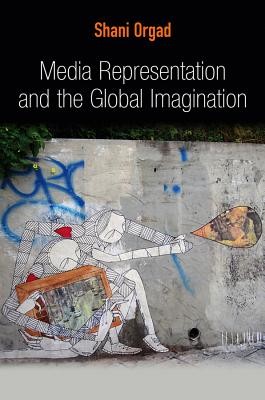
- We will send in 10–14 business days.
- Author: Shani Orgad
- Publisher: Polity Press
- ISBN-10: 0745643809
- ISBN-13: 9780745643809
- Format: 15 x 22.4 x 2 cm, minkšti viršeliai
- Language: English
- SAVE -10% with code: EXTRA
Reviews
Description
This book is a clear, systematic, original and lively account of how media representations shape the way we see our and others' lives in a global age. It provides in-depth analysis of a range of international media representations of disaster, war, conflict, migration and celebration.
The book explores how images, stories and voices, on television, the Internet, and in advertisements and newspapers, invite us to relocate to distant contexts, and to relate to people who are remote from our daily lives, by developing 'mediated intimacy' and focusing on the self. It also explores how these representations shape our self-narratives.
Orgad examines five sites of media representation - the other, the nation, possible lives, the world and the self. She argues that representations can and should contribute to fostering more ambivalence and complexity in how we think and feel about the world, our place in it and our relation to far-away others.
Media Representations and the Global Imagination will be of particular interest to students and scholars of media and cultural studies, as well as sociology, politics, international relations, development studies and migration studies.
EXTRA 10 % discount with code: EXTRA
The promotion ends in 23d.06:15:40
The discount code is valid when purchasing from 10 €. Discounts do not stack.
- Author: Shani Orgad
- Publisher: Polity Press
- ISBN-10: 0745643809
- ISBN-13: 9780745643809
- Format: 15 x 22.4 x 2 cm, minkšti viršeliai
- Language: English English
This book is a clear, systematic, original and lively account of how media representations shape the way we see our and others' lives in a global age. It provides in-depth analysis of a range of international media representations of disaster, war, conflict, migration and celebration.
The book explores how images, stories and voices, on television, the Internet, and in advertisements and newspapers, invite us to relocate to distant contexts, and to relate to people who are remote from our daily lives, by developing 'mediated intimacy' and focusing on the self. It also explores how these representations shape our self-narratives.
Orgad examines five sites of media representation - the other, the nation, possible lives, the world and the self. She argues that representations can and should contribute to fostering more ambivalence and complexity in how we think and feel about the world, our place in it and our relation to far-away others.
Media Representations and the Global Imagination will be of particular interest to students and scholars of media and cultural studies, as well as sociology, politics, international relations, development studies and migration studies.


Reviews